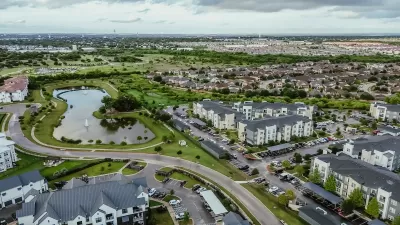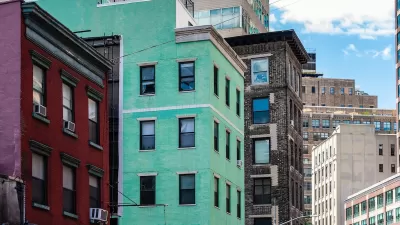A year after the law was passed, the city has failed to prosecute any of the more than 2,000 complaints filed by tenants.

In August 2021, Los Angeles passed the Tenant Anti-Harassment Ordinance (TAHO), a law aimed at holding abusive landlords accountable. A year later, despite over 2,300 complaints filed, no landlords have been prosecuted.
Reporting for L.A. Taco, Jack Ross describes the “structural flaw that makes it practically impossible for tenants to get lawyers to represent them in civil lawsuits: The law does not guarantee lawyers reimbursement for legal fees.” According to a spokesperson from the city’s Housing Department, the unfunded program was allocated some funding for enforcement in the 2022-23 fiscal year. “The senior official at LAHD said the department was not referring cases for prosecution because it had not received any that were strong enough to merit such action.”
The law bans landlords from threatening tenants with violence or deportation, interfering with tenant organizing, rejecting payments, and informally evicting tenants. Landlords who violate the law are barred from raising rent on the next tenant. “This clause is meant to deter landlords from using harassment to drive tenants from rent-controlled apartments and then renting the same apartments out at market rates.”
Tenant advocates insist harassment does happen regularly in Los Angeles. The article details some examples, outlining the challenges faced by any tenant trying to make their way through the system and pursue a case. A fall ballot initiative could, if passed, raise more revenue for the program through a tax on real estate transactions over $5 million.
FULL STORY: A Year Into New Law to Protect L.A. Renters, City Has Taken Zero Landlords to Court

Trump Administration Could Effectively End Housing Voucher Program
Federal officials are eyeing major cuts to the Section 8 program that helps millions of low-income households pay rent.

Planetizen Federal Action Tracker
A weekly monitor of how Trump’s orders and actions are impacting planners and planning in America.

Ken Jennings Launches Transit Web Series
The Jeopardy champ wants you to ride public transit.

How Project Connect Would Change ‘The Drag’
A popular — and sometimes deadly — Austin road will exchange car lanes for light rail.

Milwaukee Road to Get Complete Streets Upgrades
The city will reduce vehicle lanes and build a protected multi-use trail including bioswales and other water retention features on its ‘secret highway.’

Tackling Soil Contamination With Nature-Based Solutions
Los Angeles County residents and experts are turning to nature-based methods like bioremediation to address long-standing and fire-exacerbated soil contamination without resorting to costly and disruptive removal.
Urban Design for Planners 1: Software Tools
This six-course series explores essential urban design concepts using open source software and equips planners with the tools they need to participate fully in the urban design process.
Planning for Universal Design
Learn the tools for implementing Universal Design in planning regulations.
Ada County Highway District
Clanton & Associates, Inc.
Jessamine County Fiscal Court
Institute for Housing and Urban Development Studies (IHS)
City of Grandview
Harvard GSD Executive Education
Toledo-Lucas County Plan Commissions
Salt Lake City
NYU Wagner Graduate School of Public Service





























